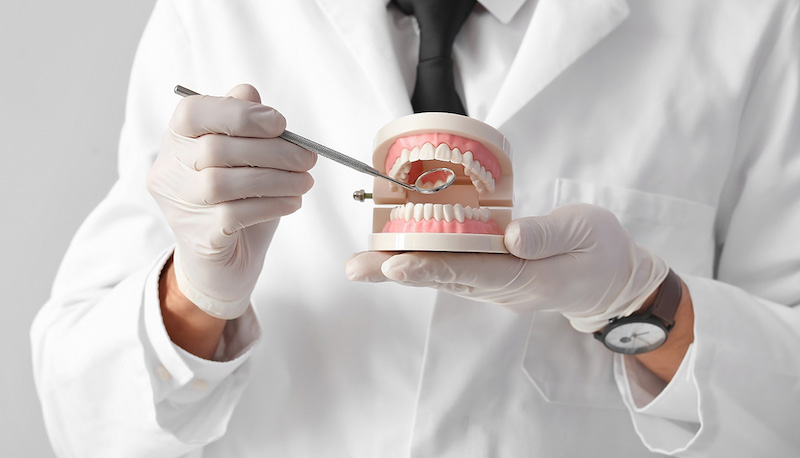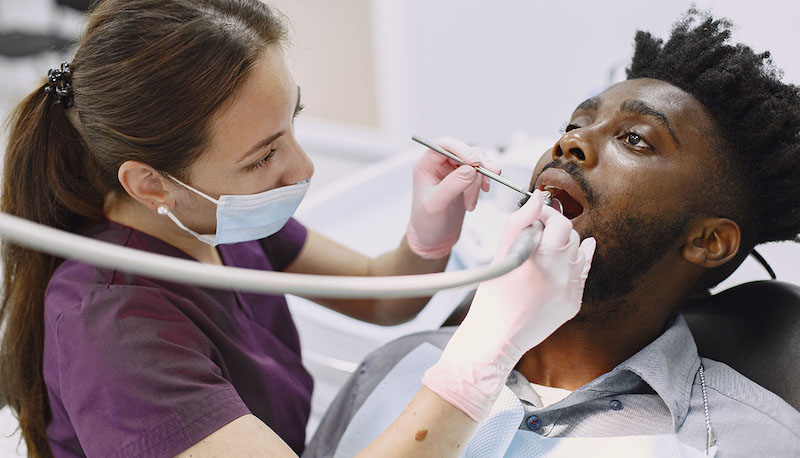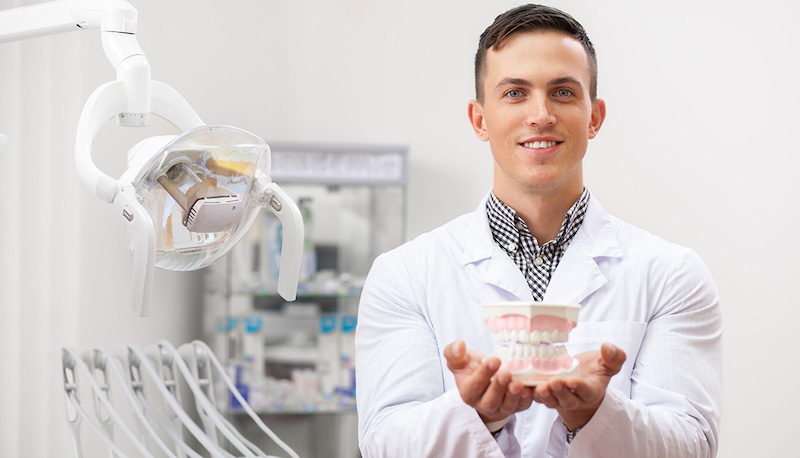Dental appointments shouldn’t only be left for when you have a dental emergency. Just like a car needs regular servicing to keep it running for years, your teeth and gums need regular ‘servicing’ in the form of professional preventative dental care by a dental team.

Put briefly, preventative dental services involve your dental team routinely checking, examining, cleaning, repairing and looking after your teeth and gums. If you’ve had a smile makeover, then preventative dental care is as important to ensure you maintain your new smile.
While it’s easy to say that “prevention is better than cure”, here are six reasons why going to the dentist regularly should definitely be on your annual to-do list.
Reasons that preventative dental care is so important
1. To detect, treat and prevent dental conditions
A dentist conducts digital dental x-rays and assessment using equipment that pick up on things that can be difficult for a patient to see or feel. Regular visits allow dentists to detect tooth discoloration and early signs of enamel loss, tooth cavities, tooth loss, oral cancer and other conditions affecting your teeth and gums. If you wear braces, aligners, dental implants, and dentures, then your dentist can also check that these are in good condition and functioning the way they should.

2. To prevent secondary health conditions
Early detection reduces your risk of secondary health conditions such as teeth grinding, overbites, and jaw misalignment. These are hard to self-diagnose and unless you’re in pain, you won’t know that you need a preventative dental care plan to help correct them. In addition, poor oral health can worsen other health conditions such as sleep disorder, chronic headaches, diabetes, heart disease and respiratory disease. Regular dental visits can therefore save your life.
3. To prevent plague build-up on your teeth
Even when you’ve been brushing and flossing daily, plaque can still build up on and between your teeth. If not removed, plaque hardens into tartar, which can lead to tooth decay, itchy gums, gum disease and other dental problems. We recommend that every six months you book an appointment with a hygienist for a clean and polish that will leave your teeth looking and feeling fresh and healthy.

4. To protect your teeth from dental injury
If you’re playing contact sports such as football, basketball and boxing, it’s important to protect your teeth from getting chipped, cracked, broken or knocked out. Your dentist can prescribe some custom-fitted sports mouthguards for you to wear to reduce the risk and severity of dental injuries when playing these sports.
5. To gain education on the correct dental hygiene
When you visit your dentist regularly, you get plenty of opportunities to ask questions about proper dental hygiene to help you maintain good brushing and flossing habits. Your dentist can explain how to take care of your teeth and gums, demonstrate how to wear aligners and mouthguards and suggest the best toothbrushes and toothpastes.

6. To minimise the cost of further preventative dental services
If you catch the dental problems early, the easier, faster and cheaper the dental treatment. This means that by visiting the dentist at least for a clean and polish every six months, you’ll be investing in your own health and total peace of mind.
Need preventative dental care but suffer from dental anxiety?
You’re not alone. Many of our new patients used to suffer from dental anxiety and fear of the dentist, but since seeing how we helped others feel comfortable in the dentist’s chair, these patients now routinely come in for preventative dental care. We’d like to help you do the same, so let us know your concerns when you request an appointment.
Our articles are not intended to be a substitute for professional dental advice, diagnosis or treatment with your dentist, dental hygienist or other medical professional. We recommend to always contact our professional team if you or the person you care for has any concerns about their oral health.
